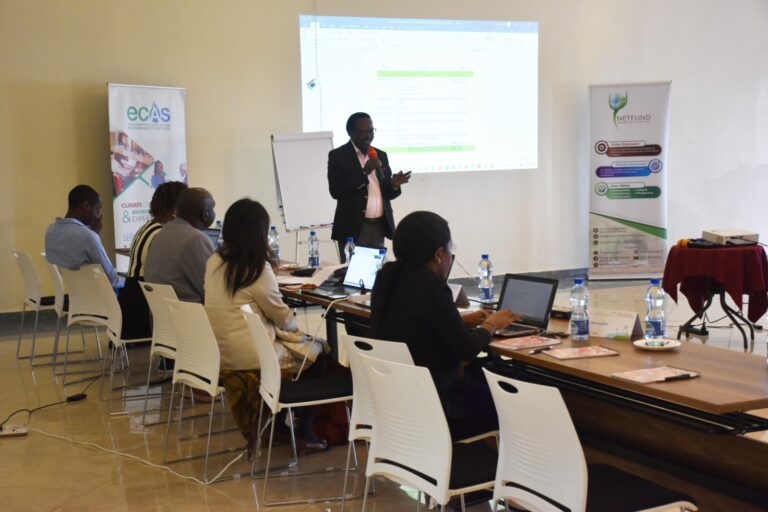
INTERNATIONAL TRAINING ON ICT STRATEGY, GOVERNANCE AND PROJECT MANAGEMENT
COURSE BACKGROUND
In the digital age, organizations across sectors are increasingly reliant on Information and Communication Technology (ICT) to drive innovation, efficiency, and strategic growth. Yet, while many institutions invest in technology, few maximize its potential due to fragmented planning, weak governance structures, and poor project execution. To bridge this gap, there is a growing demand for professionals who can develop coherent ICT strategies, enforce governance policies, and deliver technology projects that are aligned with broader organizational goals.
This course by the Environmental Capacities and Sustainability Institute (ECAS) is designed to address these challenges by integrating the three critical pillars of modern ICT management: strategy, governance, and project implementation. It emphasizes how organizations can design ICT strategies that are responsive to evolving needs, establish governance mechanisms that promote accountability and transparency, and adopt project management methodologies that ensure timely and cost-effective delivery of ICT solutions.
The course also highlights the importance of managing ICT-related risks, ensuring data privacy and cybersecurity, complying with regulatory standards, and fostering a culture of continuous improvement. Participants will gain insights into how ICT can be leveraged not only as a technical solution but as a strategic enabler of innovation, public value, and inclusive development.
Through a mix of theory, case studies, and practical exercises, this course provides a comprehensive toolkit for professionals looking to lead and manage technology-driven initiatives in dynamic and complex environments.
COURSE OBJECTIVES OF THE TRAINING
By the end of this course, participants will be able to:
- Understand the principles of ICT strategy development and alignment with organizational goals.
- Develop and implement ICT governance frameworks for accountability and risk management.
- Apply best practices in ICT project management using proven methodologies.
- Enhance institutional performance through strategic use of technology.
- Manage ICT risks, compliance, and change initiatives effectively.
- Evaluate ICT performance and drive continuous improvement.
WHAT YOU WILL LEARN
This course provides participants with a strong foundation in the strategic planning, governance, and execution of ICT initiatives. Learners will gain practical skills in designing ICT strategies, managing risks and change, and delivering impactful technology projects.
- Principles of ICT strategic planning and alignment
- Governance frameworks and compliance in ICT
- ICT project lifecycle management and agile approaches
- Performance monitoring and metrics for ICT initiatives
- Risk management and business continuity in technology projects
- Stakeholder engagement and change management
DURATION AND PROGRAM
TARGET PARTICIPANTS
This course is ideal for ICT managers, chief information officers (CIOs), IT project managers, and strategy officers working in both public and private sector organizations. It is also suited for government officials, development practitioners, and policy makers responsible for overseeing digital transformation, e-governance, or IT-driven service delivery. Professionals in risk and compliance, organizational development, and operations will benefit from learning how to integrate ICT governance and strategy into broader institutional frameworks. Additionally, it caters to consultants, auditors, and ICT advisors supporting technology planning, procurement, and implementation efforts in donor-funded or cross-sectoral development projects.
TRAINING STYLE
The modules will be taught through PowerPoint presentations, and lectures and will include a case study/field visit, breakout sessions, case studies and other interactive discussion components.
The course will also include a few guest speakers, both in person and via Zoom and other online learning platforms for overseas speakers. This provides useful real-world insights alongside the more theoretical aspects of the course.
The conference faculty shall consist of experienced decision makers, as well as practitioners and representatives from established educational and research institutions active around climate change, engineering and international development. Throughout the course, theoretical presentation of concepts will be moderated and more group discussions and plenary engagements will be optimized. PowerPoint presentations will be made by facilitators and resource persons, to highlight key concepts before embarking on group work.
TRAINING MODULES
| No | Module | Details | |
| 1. | Strategic Planning for ICT in Organizations |
This module lays the foundation for understanding how to develop a future-ready ICT strategy aligned with institutional goals. It explores the role of ICT in achieving operational efficiency, service delivery, and innovation. Topics:
| |
| 2. | ICT Governance and Institutional Oversight |
This module focuses on how to establish structures and policies that ensure the responsible, ethical, and effective use of ICT within an organization. Topics:
| |
| 3. | ICT Project Management Essentials |
Participants will gain core competencies in planning, executing, and monitoring ICT projects using globally recognized methodologies. Topics:
| |
| 4. | ICT Risk Management and Business Continuity |
This module equips learners with tools to identify, assess, and mitigate risks throughout the lifecycle of ICT initiatives while ensuring resilience and continuity. Topics:
| |
5. | Monitoring, Evaluation, and ICT Performance Optimization |
Learn to measure and analyze ICT performance using KPIs and feedback mechanisms, and translate insights into improved strategies and services. Topics:
| |
9. GENERAL NOTES
- Training manuals and additional reference materials are provided to the participants.
- Upon successful completion of this course, participants will be issued with a certificate.
- We can also do this as a tailor-made course to meet organization-wide needs. Contact us to find out more: info@ecasiafrica.org.
- Payment should be sent to our bank account before the start of training and proof of payment sent to: info@ecasiafrica.org.
ABOUT ECAS INSTITUTE
The ECAS Institute designs and delivers independent and targeted training, research, and consulting services. Our work focusses on climate change and resilience building, carbon markets, renewable energy, nature-based solution, biodiversity conservation, agriculture and food systems, We are located in Nairobi Kenya and work across the African region. We have implemented training and research assignments in Kenya, Tanzania, Uganda, South Sudan, Somalia, Malawi, Rwanda, Congo, and South Africa. Globally, we have supported our partners from the UK, Denmark, Italy, Sweden, Germany, and USA

